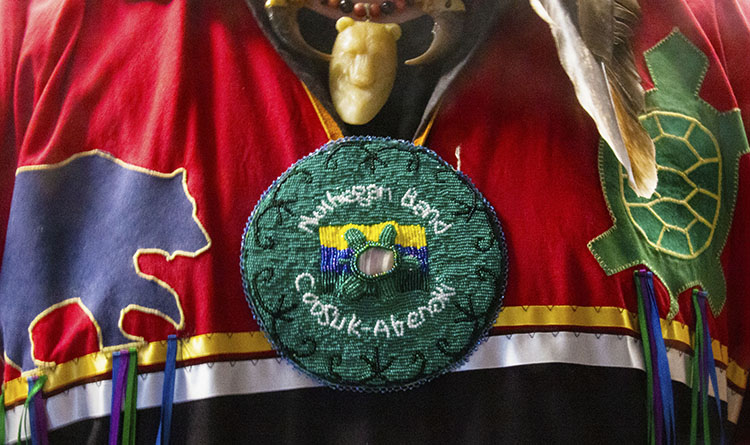
By Mara Brooks
Staff Writer
In a small lecture hall at the University of Vermont Tuesday, Chief Don Stevens of the Nulhegan Abenaki Tribe presented the film Nebi: Abenaki Ways of Knowing Water to students and community members. It was one of many events to make Indigenous Peoples’ Day and indigenous culture a greater part of the campus community. “I am here to educate on our way of thinking, which shouldn’t be any different from yours,” he told the crowd of 15.
October 14 marked the first celebration of Indigenous Peoples’ Day in Vermont, officially replacing the holiday that Americans have known as Columbus Day. The story of Christopher Columbus’ arrival in the Americas has been a cornerstone lesson in United States history but as his widespread acts of genocide against indigenous peoples have become more prominent in mainstream American consciousness, six states and more than 50 cities have adopted Indigenous Peoples’ Day to honor the first inhabitants of the Americas who have often been erased from United States history. The movement first took off in the 90s, when South Dakota replaced celebrations of Columbus with a “Native American Day.”
A Newsweek poll published this month found that about 79 percent of American college students avidly support this transition.
Hayley Jensen ‘22, a core leader for MOVE’s Civil Rights Alliance, applauds the change. “I feel like it’s very timely. The United States is trying its best to acknowledge its troubled past and it’s important to recognize our entire history. Our history isn’t all sunshine and daisies like we learn in elementary school.”
Many students, such as Momoka Okamura ‘21, see the day as an opportunity to celebrate and honor the multiculturalism that makes America unique. “In my country, Japan, we don’t think much about diversity because not a lot of people are aware of the fact that Japan is no longer monoethnic. America in comparison to Japan has a lot more diversity, but I still see a lot of problems here with people not accepting different races and cultures. Indigenous Peoples’ Day is a more ethical way to celebrate this diversity.”
The newly named holiday provides opportunities for Native Americans and others to honor and embrace indigenous roots.
Even beyond the community at large, Chief Eugene Rich of the Missisquoi Abenaki Tribe points out that the holiday resonates most strongly with young tribal members, who are taking the day as an opportunity to reclaim their heritage that the generations before often tried to hide. “They are coming out now and saying ‘Hey, this is something to be proud of.’”
Rich stressed that this is but one step in reestablishing natives’ roots in Vermont while educating the public on the importance of their culture. “We need to now focus on what makes us unique. Encourage people to ask questions, keep everything moving forward and educate the public.”

